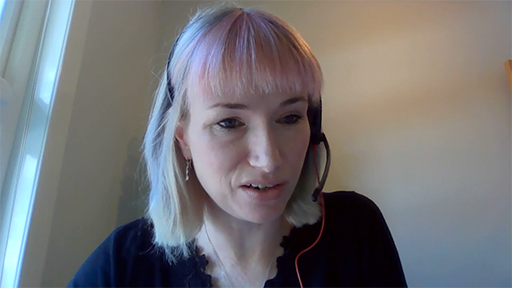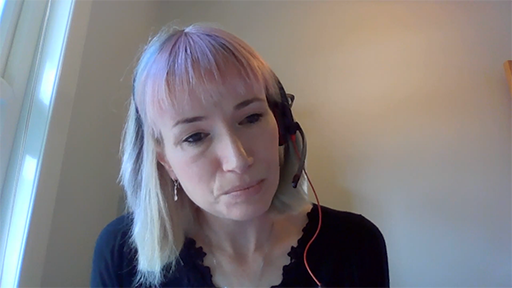2.1 A framework for building digital capabilities
Many higher education and further education institutions have adopted the Jisc digital capabilities framework, which expresses the essential digital skills every adult should have in the context of the workplace and provides a means of articulating and understanding digital capabilities in an FE/HE setting. The framework states that:
- At an individual level we define digital capabilities as those which equip someone to live, learn and work in a digital society.
- At an organisational level we need to look beyond the capabilities of individuals and consider the extent to which the culture and infrastructure of an institution enables and motivates digital practices.
The framework defines these capabilities as follows.
| The six elements of the individual digital capability framework are: | The six elements of the organisational digital capability framework are: |
|---|---|
|
|
In the video below, Dr Becki Vickerstaff, Higher Education Senior Consultant at Jisc, explains the Jisc digital capabilities framework.

Transcript
When thinking about a digital capabilities framework, it is important to define the following in order to ensure that you understand the digital skills and behaviours needed for different contexts within your HEI – one size does not fit all!
- People: The group of people who need the skills
- Places: The context in which they need to use the skills
- Technology: The tools and systems that they need the skills to use
- Period: The time frame in which these skills are relevant (Orlik [Tip: hold Ctrl and click a link to open it in a new tab. (Hide tip)] , 2018).
Activity 6 Jisc’s framework: how digitally confident are you?
Research the Jisc digital capability framework in more detail. Consider what it means to you as an individual, and how digitally confident and capable you feel you are.
Jisc Digital Capabilities Framework
You may wish to use one of the following tools to help assess your own digital capability:
- If your HEI is a member of Jisc you may have access to the Jisc Discovery Tool which is a self-assessment tool to help you to understand and develop your digital capabilities.
- If your organisation is not a member you may wish to use The Digital Competence Wheel.
Write a summary of how digitally confident and capable you are and identify the areas you would like to develop. Think about which digital skills and behaviours are important in your personal life and in your role within an organisation. If you work in a HEI also consider the digital skills and tools you use, both in order to operate effectively as an organisation, and the skills to provide the best outcomes for your students.
Comment
Within The Open University the following approach has been taken to set Jisc’s digital capabilities into the OU context. Subject matter experts from across The Open University have collaborated to develop an approach to build and support digital capabilities, through guidance, training, support and processes.
| Capability | This means that we…. |
|---|---|
Using technology (ICT proficiency) |
|
| Digital communication, collaboration and participation |
|
| Digital creation, problem solving and innovation |
|
| Information, data and media literacy |
|
Digital learning and teaching (digital learning and development) |
|
| Digital identity, wellbeing and sustainability |
|
Note: The Open University has included digital sustainability as an additional capability, that is not part of the Jisc framework.
Using the Jisc framework
In the video below, Becki Vickerstaff recaps what the framework is, then contributors discuss how it has been used in their organisations so far and areas to consider for the future.

Transcript
Many HEIs and FEIs work with Jisc and other organisations to develop resources to help build digital capabilities. In the video below Becki Vickerstaff explains how the Jisc framework has been used to create digital resources areas to help build digital capabilities of staff and students.

Transcript
Activity 7 Explore the DigiCentre
The University of Wales Trinity Saint David worked with Jisc to create the DigiCentre, their one-stop shop for digital skills needs.
In the video below Sarah Jones, Head of Academic Services, Library and Learning Resources, University of Wales Trinity Saint David, discusses how it can be used and areas to consider.

Transcript
Take some time to explore the DigiCentre. You may also wish to read the Jisc case study about this project: University of Wales Trinity St David, Building digital capability (jisc.ac.uk).
Consider how you might approach developing resources to raise digital capabilities in your own organisation.
